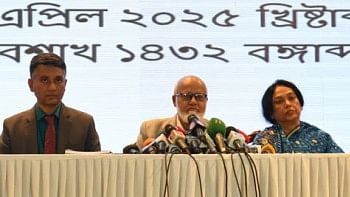Get ready for paperless trade: minister
The implementation of the World Trade Organisation's trade facilitation agreement will reduce business costs by 17-31 percent and time taken for international trade by 24-41 percent, said Commerce Minister Tofail Ahmed yesterday.
The WTO adopted the agreement in its ninth ministerial conference in Bali in 2013 aiming to introduce paperless documentation in international trade, mainly in customs clearance.
It also aims to reduce the lead-time in international trade, red-tapism by bureaucrats and corruption which also raises business costs.
Like in other countries, Bangladesh, which ratified the agreement in September last year, has also started doing its homework to implement the agreement, which was ratified by two thirds of WTO members till January this year.
The National Board of Revenue will open a “national single window” in this regard in 2019 through the introduction of the digital documentation system, said Ahmed.
“We are working to introduce an e-commerce trading system everywhere in Bangladesh as it is very much related to the WTO's paperless trading system,” he told a workshop on paperless trade facilitation in Bangladesh at the Cirdap office in the capital.
Bangladeshi exports will cross the $60 billion mark within 2021, the minister said, urging government officials, businessmen, entrepreneurs, exporters and importers to prepare for entering the digital business system.
Amir Hossain, a freight forwarder, said Bangladesh is not producing the required skilled manpower for paperless trading system whereas countries like India and Vietnam have already produced their manpower to handle this new kind of business system.
For example, Hossain said India has targeted to produce 2 million of the much needed skilled workforce only in the logistics service sector by 2020. Logistics and transportation are very important parts of the paperless business, he said.
Kamal Hossain, an official of the Bangladesh Garment Manufacturers and Exporters Association, suggested that the government open a separate IT company to produce the required technical equipment and software for the paperless trade.
He also said his association already started adopting the paperless documentation system on a limited scale, such as issuing of e-certification for member factories.
A commerce ministry official said the paperless trading system needs to be introduced in the country first on a trial basis before using it for cross-border trade.
Although paperless trade will reduce both time and money, it is not good news for all sectors like C&F agents, freight forwarders, dishonest traders and courier service providers, said Amitava Chakraborty, director of Bangladesh Foreign Trade Institute (BFTI), while presenting a keynote.
The C&F agents will not have much of a job left and there is a threat of unemployment in the C&F agents business, Chakraborty said.
Some dishonest traders tamper with the documents to evade taxes and if the paperless trade is implemented, such tampering would be curbed.
The business of courier service providers will decline for the paperless trade and cost of transformation will go up, he said.
The agreement will mainly boost digitisation of customs clearance and documentation both in the export and import business, according to a report from the WTO.
The agreement contains provisions for expediting the movement, release and clearance of products, including goods in transit.
It sets out measures for effective cooperation between customs and other appropriate authorities on trade facilitation and customs compliance issues. The treaty also contains provisions for technical assistance and capacity building in this area, the WTO said.
The agreement has the potential to increase global merchandise exports by up to $1 trillion.
If the agreement is implemented properly, exports from developing countries are estimated to increase by $170 billion to $730 billion, while that from developed economies by $310 billion to $580 billion a year, according to the WTO.
The fuller and faster implementation of the agreement will also boost the overall world export growth by up to 2.7 percent and global GDP growth by 0.5 percent, the WTO said.
The agreement is expected to help the developing countries diversify their exports as well.
Ali Ahmed, CEO of BFTI, chaired the workshop.

 For all latest news, follow The Daily Star's Google News channel.
For all latest news, follow The Daily Star's Google News channel. 



Comments